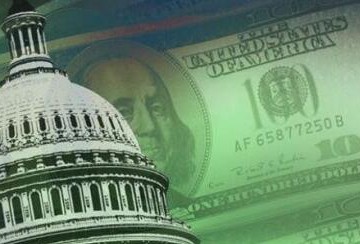据《中国日报》(China Daily)报道,周二一位匿名官员确认,中国税收机构可能引入监管新规,对个人接受企业发放的电子红包进行征税。
这一计划出自一份日期为7月28日、在国家税务局内部传阅的文件,但文件周一在网上泄露。
目前还没有正式文件,只是被抄送各地税务部门,上述消息人士确认这一消息属实,但表示尚未确定何时将其公诸于众。
该消息人士表示,税务当局发现很难“识别和区分各种电子红包的意图”。
电子红包在今年春节期间非常火爆。微信、支付宝和新浪微博都可以让用户通过网络支付方式互赠红包。
根据腾讯的数据,在今年2月18日到23日期间,用户总共发送了32.7亿个红包。
税收专家建议,如果个人接受红包被征税,应该是按照“意外收入”的名目,以前用于对彩票收入征税。
不过,个人之间相互发送的电子红包将不会被征税。
以下为英文原文:
Tax authorities are likely to introduce new regulations on taxing individuals receiving digital red envelopes from corporations, an unnamed official source confirmed on Tuesday.
A leaked version of a document, circulated internally within the State Administration of Taxation, dated July 28, outlining the plans, was posted on the Internet on Monday.
Not officially released yet but only sent to regional tax bureaus, the source confirmed its existence but said no schedule has yet been finalized on when the document might be released to the public.
The source said that officials have found it hard to "identify and differentiate the various purposes behind dispatching digital red envelopes".
The sending of digital red envelopes became hugely popular during this year's Spring Festival in February. They allow users to transfer "gift" money to each other on applications developed by WeChat, Alipay or Sina Weibo, via online payment methods.
According to Tencent Holdings Ltd, which owns WeChat, 3.27 billion red envelopes were sent online by users between Feb 18 and 23. Due to its convenience, the money transfer method became popular.
Tax experts have suggested that if individual receivers are to be taxed, it would be done under the rules governing "accidental gains", previously applied to lottery winners, under which awards of more than 10,000 yuan ($1,607) are taxed at 20 percent.
The online version of the leaked SAT document followed that principle, but separated digital red envelopes handed out by corporations into "cash" or "coupons and vouchers" that can be only used to buy the firms' products or service.
In the "cash" scenario, the envelopes are likely to be considered an "accidental gain", the source said, leaving receivers subject to the 20 percent individual income tax. In the case of "red envelopes" handed out by Didi Kuaidi, China's largest mobile-based car-booking company, for example, no tax would be payable if the funds were used to pay for a car booking.
Digital envelopes handed out among individuals, meanwhile, will not be subject to tax.










 动物系恋人啊 | 钟欣潼体验爱情哲学
动物系恋人啊 | 钟欣潼体验爱情哲学 南方有乔木 | “科创CP”渐入佳境
南方有乔木 | “科创CP”渐入佳境 魔都风云 | 周冬雨任达华演父女
魔都风云 | 周冬雨任达华演父女







我来说两句排行榜